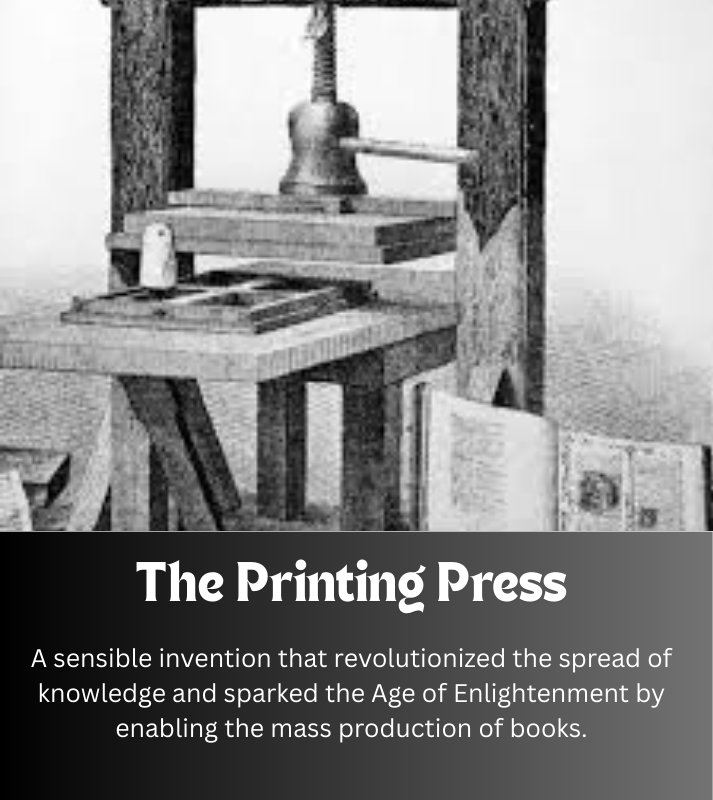The Printing Press
A sensible invention that revolutionized the spread of knowledge


In the grand tapestry of human history, few inventions have had as profound an impact as the printing press. It wasn't just a machine; it was a catalyst that fundamentally changed how we create, share, and preserve knowledge. Before its arrival, books were painstakingly copied by hand, a slow and expensive process that made them rare treasures, accessible only to the wealthy and the clergy.
A Spark of Ingenuity
Around 1440, Johannes Gutenberg, a German goldsmith, developed a method of movable type that would become the foundation of the printing press. His innovation was a combination of several existing technologies—a screw press (similar to a wine press), a new oil-based ink, and, most importantly, individual, reusable metal letters. This allowed for the rapid and accurate duplication of texts. The first major work he produced was the Gutenberg Bible, a monumental achievement that marked the dawn of a new era.
A sensible invention that revolutionized the spread of knowledge
The Ripple Effect
The printing press didn't just make books cheaper; it made them a tool for the masses. This single invention set off a chain reaction that fueled some of the most significant movements in history:
The Renaissance: The ability to print classical texts spurred a renewed interest in ancient Greek and Roman philosophy, art, and science, helping to pull Europe out of the Middle Ages.
The Protestant Reformation: Martin Luther's "Ninety-five Theses" were quickly and widely distributed thanks to the printing press, allowing his ideas to spread like wildfire and challenge the authority of the Catholic Church.
The Scientific Revolution: Scientists like Copernicus and Galileo could now share their findings with a much wider audience, accelerating the pace of discovery and building on each other's work more effectively than ever before.
The Age of Enlightenment: This period of intellectual and philosophical fervor was unthinkable without the printing press. It provided the platform for thinkers like Voltaire and Rousseau to disseminate their ideas on reason, liberty, and individual rights, directly inspiring revolutions in America and France.
More Than Just Ink on Paper
The printing press was a "1 in a million" invention because it democratized knowledge. It empowered individuals to learn, to question, and to form their own opinions. It broke the monopoly on information held by the elite and laid the groundwork for a literate society. In essence, it didn't just print books—it printed the future, paving the way for the modern world we live in today.
Discover the extraordinary and unique stories.
Inspire
© 2025. All rights reserved.
